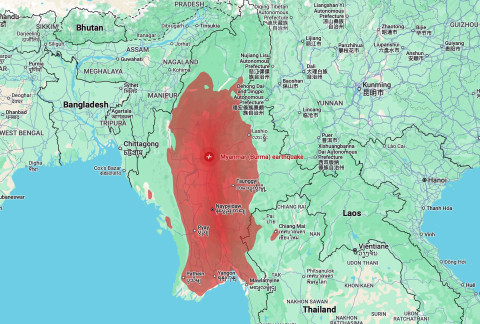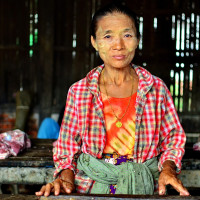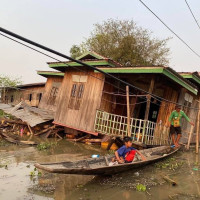In response, the military State Administration Council made a rare appeal for international aid. But it is a call that is received with little trust or credibility inside the country or in humanitarian aid circles abroad. Since the 2021 coup, the number of refugees and internally displaced persons has passed the four million mark, with over 6,000 civilians killed by the Myanmar military as resistance against the regime continues to spread. Less than half the country is under regime control; SAC aerial and artillery attacks on civilian populations are an everyday occurrence; and ethnic and political opposition forces are seeking to rush out humanitarian assistance programmes of their own.
Tragically, for Myanmar’s peoples this is just the latest disaster they have had to face against the endless backdrop of conflict, repression and humanitarian emergency. Memories are still fresh of the 2008 Cyclone Nargis in which 140,000 people died under a previous incarnation of military rule. Subsequently, there had been hopes of political change during a short-lived era of power-sharing government with the National League for Democracy. But this came to an abrupt end with the 2021 coup.
Reliable news on the ground is difficult to access. But a number of anonymous sources were keen to have their voices heard. ‘It seems the Myanmar people are caught in a disaster loop,’ said one medical worker. ‘It feels like disasters love us helpless people,’ said a civil society supporter. ‘We are so tired of our country name being associated with bad news. The people just have to try and live on our own capacity all these years.’ And explained an international aid worker, ‘The Myanmar government is mostly doing nothing. The international community has other focuses, and the people are mostly left to fend for themselves and help each other.’
Worryingly, too, there are concerns that international actors, including China, Russia and India, might use this as an opportunity to advance their own interests and seek to bail out the regime. If so, anti-SAC groups on the ground believe that little will change. Rather, the Myanmar military will continue its long-standing practice of monopolising international aid, and the conflict divisions and humanitarian emergency will only continue. Indeed, in the aftermath of the quake there were more reports of aerial attacks by the regime on civilian populations in resistance areas. As a local resident in Sagaing commented, ‘Houses can’t collapse when they have been torched down.’



